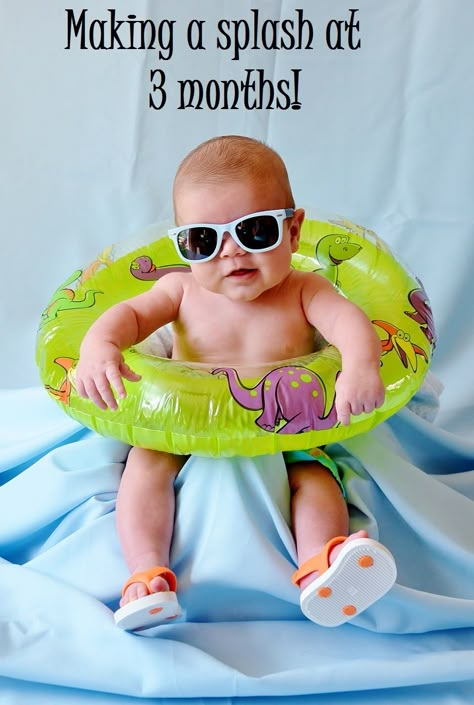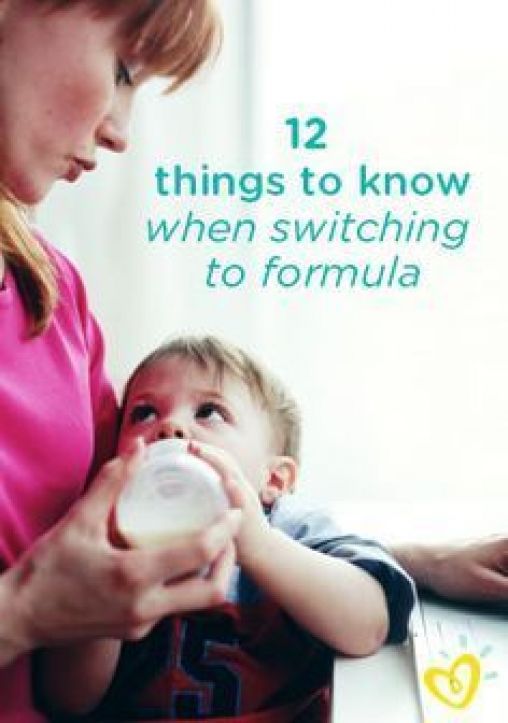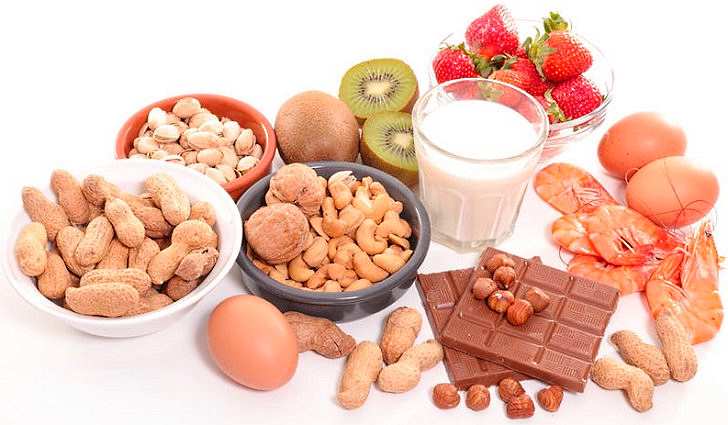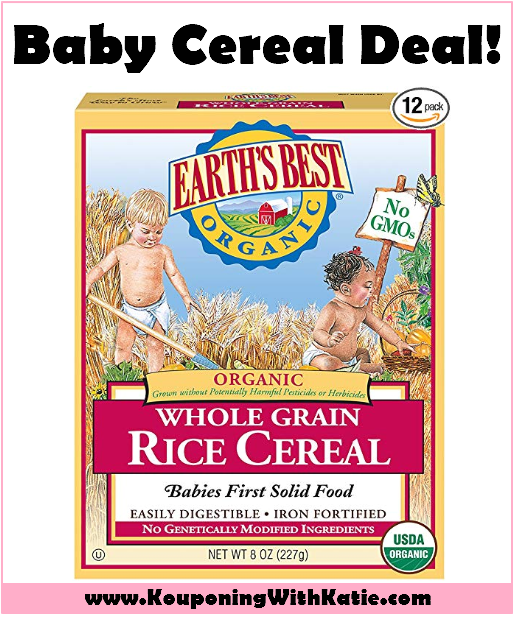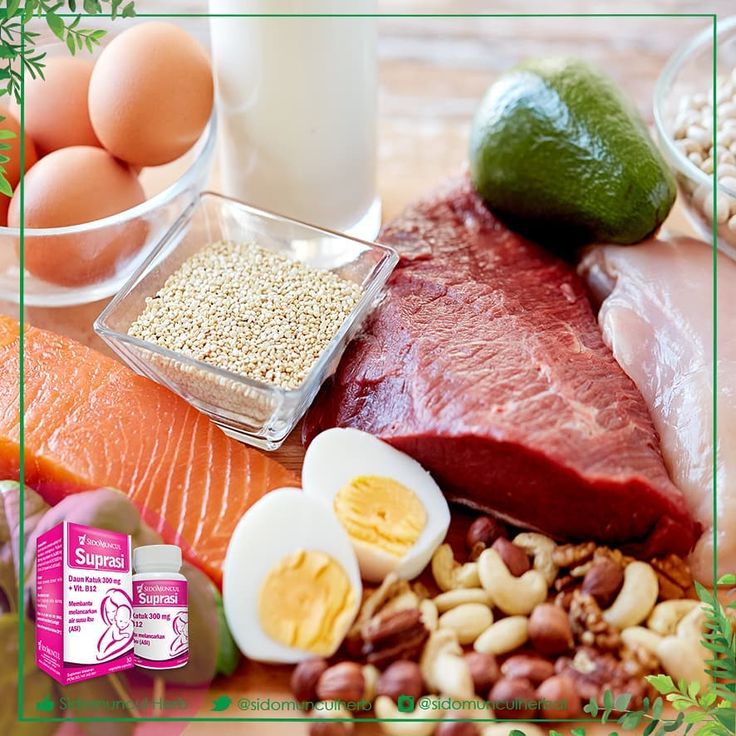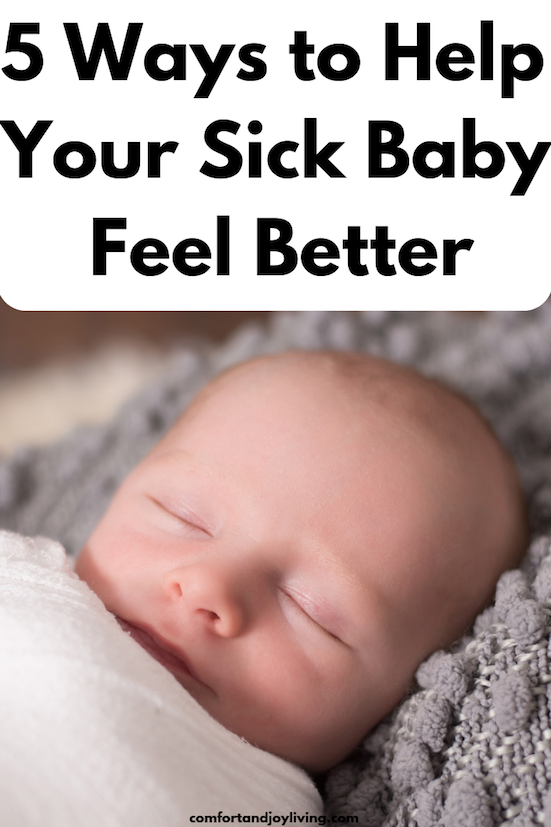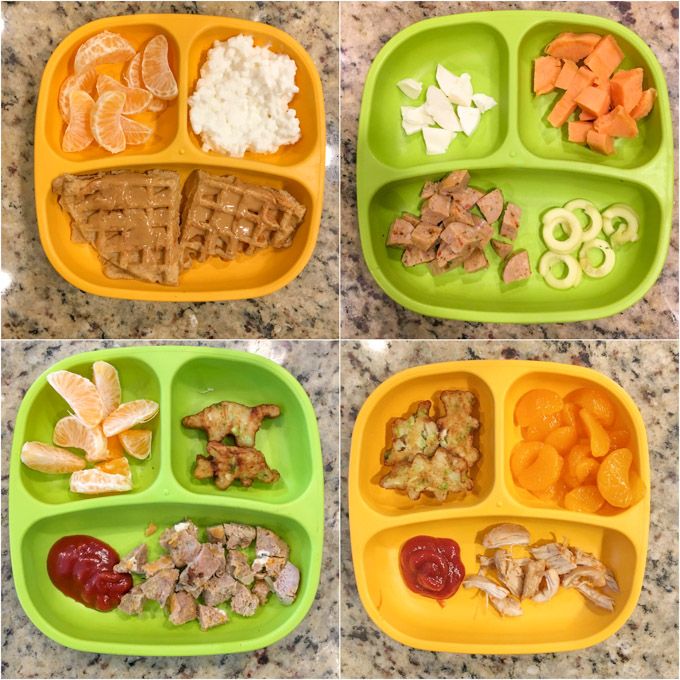Contaminants in baby food
Homemade Baby Food Contains Toxic Metals, Too
Aug. 12, 2022 -- Homemade baby food contains as many toxic metals as food bought in the store, according to a new report released Thursday.
About 94% of homemade and store brands were contaminated with one or more toxic heavy metals. The heavy metal levels varied widely by food type, not by who made the food.
“We found no evidence to suggest that homemade baby foods made from store-bought produce are better than store-bought baby foods when it comes to heavy metal contamination,” Jane Houlihan, the paper’s co-author and research director for Healthy Babies, Bright Futures, told CNN.
The group, which is an alliance of nonprofits, scientists and donors, has a mission of reducing babies’ exposures to neurotoxic chemicals.
“Toxic metal exposure can be harmful to the developing brain. It’s been linked with problems with learning, cognition, and behavior,” according to consumer-focused information from the American Academy of Pediatrics. “But keep in mind that many genetic, social, and environment factors influence healthy brain development, and toxic metal exposure is just one of these factors.”
Houlihan and colleagues tested 288 foods bought at stores and farmers markets across the U.S., including grains, fruits, vegetables, snacks, teething foods and family items that babies eat, such as cereals and rice cakes. They tested for four major heavy metals — lead, arsenic, mercury and cadmium — that are among the WHO’s top 10 chemicals of concern for infants and children. They also looked at data from 7,000 food tests reported in published studies and by the FDA.
The researchers found that 94% of foods contained detectable amounts of one or more toxic heavy metals. Lead was found in 90% of manufactured baby food and 80% of store-bought family food and homemade purees.
In addition, arsenic was found in 68% of store-bought baby food and 72% of family food either purchased or prepared at home. Cadmium was found in 65% of purchased baby food and 60% of family foods.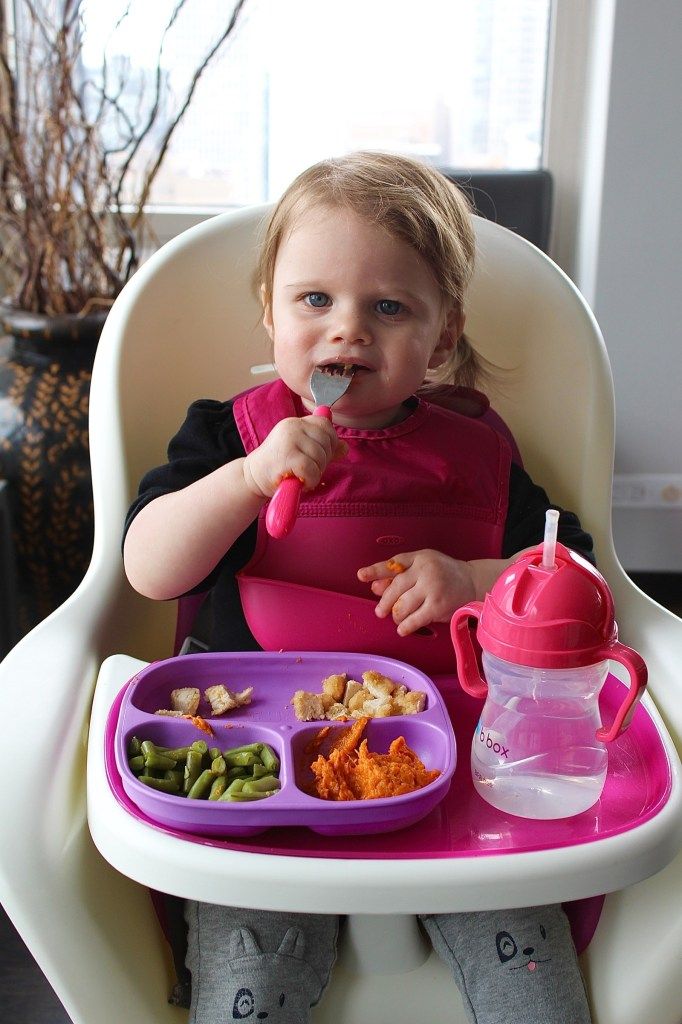 Mercury was found in 7% of store-bought baby food and 10% of family foods.
Mercury was found in 7% of store-bought baby food and 10% of family foods.
The new report is a follow-up to a November 2019 report by Healthy Babies, Bright Futures, which tested 168 foods purchased from major baby food manufacturers. The analysis found 95% of store-bought baby food contained lead, 73% contained arsenic, 75% contained cadmium and 32% contained mercury. About one-fourth of the foods had all four heavy metals.
“After that report, we saw so many people saying you can get around this problem by making your own baby food at home, so we decided to check,” Houlihan told CNN. “We suspected we’d find heavy metals in all kinds of food because they’re ubiquitous contaminants in the environment.”
Healthy Babies, Bright Futures created a new parent’s guide of popular baby foods to serve, limit and avoid based on the tests.
Four popular rice-based foods — crisped rice cereal, brown rice, rice puffs and rice cakes — were so heavily contaminated by heavy metals that the researchers recommended avoiding them altogether.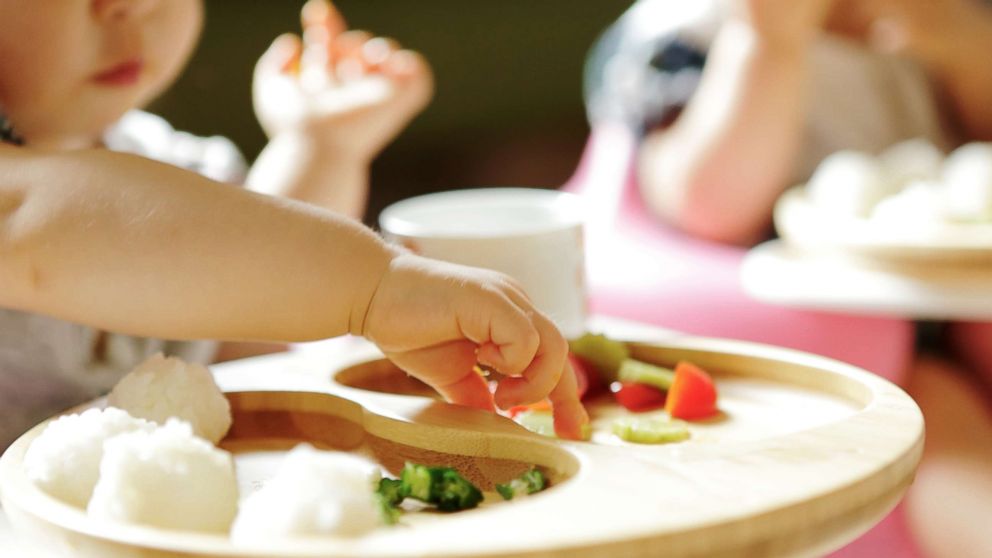 In contrast, 14 foods — such as bananas, apples, beans, peas, milk and cheese — have little contamination and can be served freely.
In contrast, 14 foods — such as bananas, apples, beans, peas, milk and cheese — have little contamination and can be served freely.
In the middle, 22 foods — including peanut butter, fruit juice, oatmeal and teething biscuits — have moderate to relatively high amounts of heavy metals. These should be eaten rarely or in rotation with other foods, the researchers said. For some of the foods, the preparation matters, and peeling and cooking the foods can lower the heavy metal content.
The key is to feed children with as many different types of food as possible, Mark Corkins, MD, a pediatrician and chair of the American Academy of Pediatrics’ Committee on Nutrition, told CNN.
“If you spread foods out, and offer a wide variety of options, you’ll have less toxicity,” he said. “And nutritionally, that’s always been the right thing to do to get the most micronutrients from the food you eat.”
Manufacturers allowed baby food contaminated with heavy metals to remain on shelves, lawmakers say
CNN —
Gerber and Beech-Nut failed to properly test and remove baby foods with dangerous levels of inorganic arsenic from the market, while Sprout Foods Inc., Walmart’s Parent’s Choice and Plum Organics (formerly owned by Campbell) were lax in testing and controlling for heavy metals such as lead, mercury and cadmium, according to a US Congressional report released Wednesday by the House Subcommittee on Economic and Consumer Policy.
“Today’s report reveals that companies not only under-report the high levels of toxic content in their baby food, but also knowingly keep toxic products on the market,” said Democratic Rep. Raja Krishnamoorthi of Illinois, chair of the House Subcommittee on Economic and Consumer Policy, which conducted the investigation.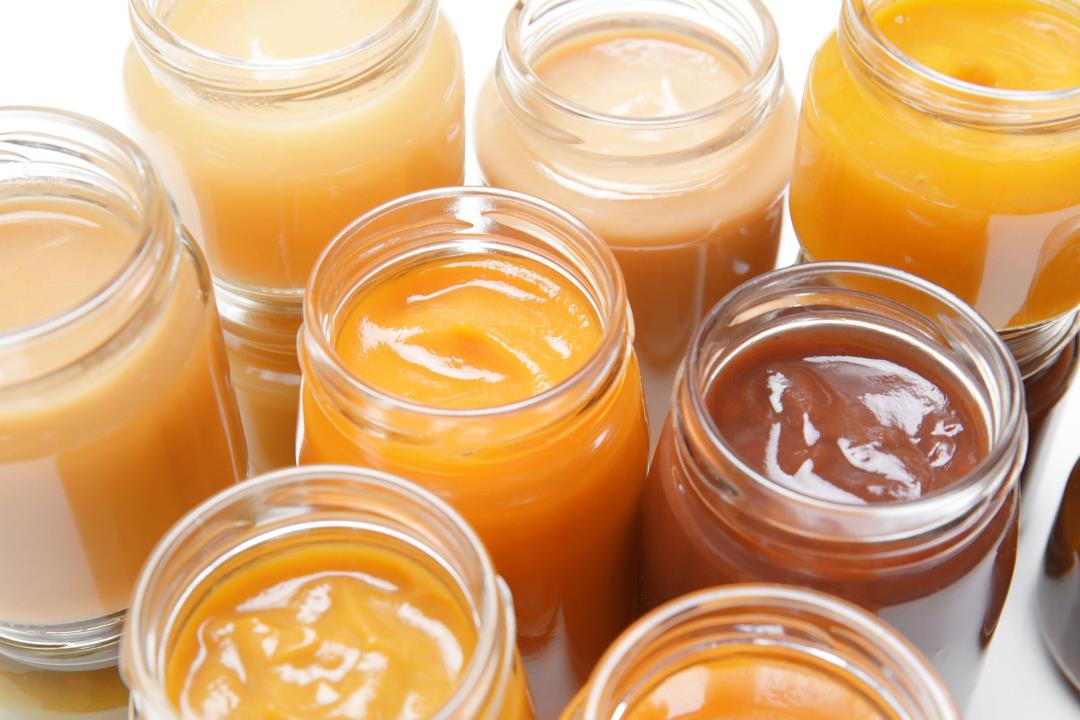
Several baby food manufacturers CNN contacted disagree with the subcommittee’s assessment, and all say they are committed to working closely with the US Food and Drug Administration to address the issue.
Arsenic and other heavy metals are natural elements found in soil, water and air. Rice, which is a common ingredient in baby cereal, is grown submersed in water and is especially good at absorbing inorganic arsenic, the most toxic form.
hm baby solid food_00000924.jpg
95% of tested baby foods in the US contain toxic metals, report says
Exposure to heavy metals in baby food became a growing concern for parents after Healthy Babies Bright Futures, a coalition of advocates committed to reducing babies’ exposures to neurotoxic chemicals, tested 168 baby foods from major manufacturers in the US.
The testing found 95% of sampled baby foods contained lead, 73% contained arsenic, 75% contained cadmium and 32% contained mercury. One fourth of the baby foods contained all four heavy metals. The results mimicked a previous study by the US Food and Drug Administration that found one or more of the same metals in 33 of 39 types of baby food tested.
“Even in trace amounts, these contaminants can alter the developing brain and erode a child’s IQ,” said Jane Houlihan, research director for Healthy Babies Bright Futures.
“The impacts add up with each meal or snack a baby eats — especially when the levels are as high as Healthy Babies Bright Futures’ research and the subcommittee’s new report show.”
In an earlier investigation released in February, the subcommittee looked at internal testing documents from four major baby food manufacturers: Gerber; Beech-Nut Nutrition; Nurture, Inc., which sells Happy Baby products; and Hain Celestial Group, Inc., which sells Earth’s Best Organic baby food.
The documents showed some products contained levels of lead, mercury, cadmium and inorganic arsenic were far above limits set for bottled water by the FDA and the US Environmental Protection Agency.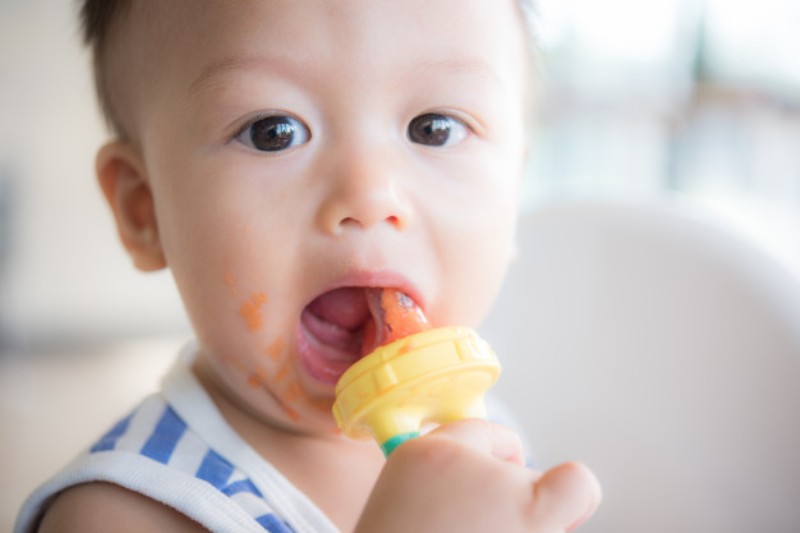 Ground water can easily absorb heavy metals from the soil, and old lead pipes leak, so drinking water is a key exposure to heavy metals.
Ground water can easily absorb heavy metals from the soil, and old lead pipes leak, so drinking water is a key exposure to heavy metals.
Baby taking a bite of food from a spoon with jar of baby food in foreground - stock photo
Chris Tobin/Digital Vision/Getty ImagesLeading baby food manufacturers knowingly sold products with high levels of toxic metals, a congressional investigation found
Inorganic arsenic, lead, cadmium and mercury are in the World Health Organization’s top 10 chemicals of concern for infants and children.
Of the four companies, the subcommittee found only Nurture tested the final product – the actual food babies would eat – after all ingredients had been added.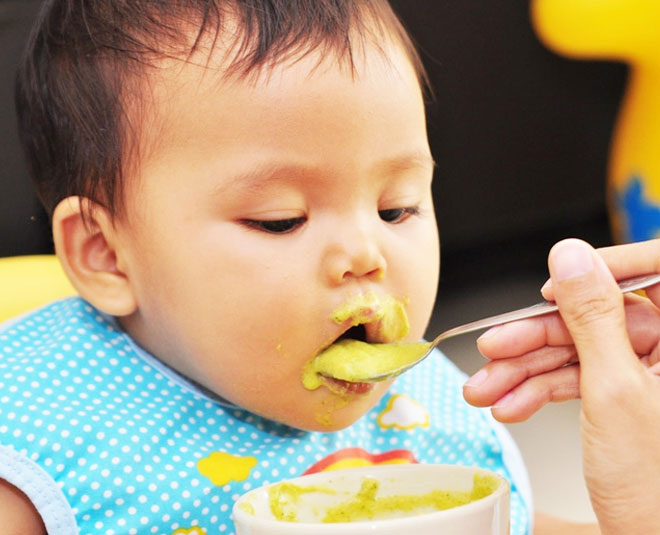 The rest of the companies tested some, but not all ingredients, the investigation found.
The rest of the companies tested some, but not all ingredients, the investigation found.
That’s a significant concern, the report said, because each ingredient may have levels of toxins that fall under the cutoff for safety – but when added together, they may exceed government standards.
There is no safe level of lead for children, according to the EPA and US Centers for Disease Control and Prevention. While there are no specific limits set for infant foods, the EPA and FDA set an upper limit of 2 parts per billion of inorganic mercury in drinking water, and 5 parts per billion for cadmium.
In 2016 the FDA introduced a standard of 100 parts per billion for inorganic arsenic in infant rice cereal, finalizing that guidance in August 2020. But that level is too high to protect babies’ brains, critics said, especially considering the agency had already set the limit for bottled water at 10 parts per billion (ppb).
“FDA set the limit at 100 ppb because it was focused on the level of inorganic arsenic that would cause cancer. It disregarded the risk of neurological damage, which happens at a much lower level,” the report stated.
A maximum level of inorganic arsenic in baby food should be set at 10 parts per billion, the report said, “with a 15 ppb limit for infant cereal, as proposed in the Baby Food Safety Act.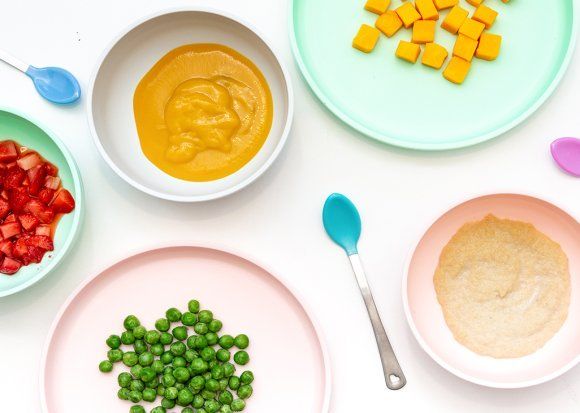 ”
”
An FDA spokesperson told CNN that the agency continues to make “steady progress towards developing action levels for lead in foods and evaluating the science to establish reference levels for arsenic and cadmium.”
“We look forward to providing additional updates on our efforts as new data, information, progress updates and additional material are made available.”
In May, the state of Alaska conducted a FDA-funded analysis of Beech-Nut’s and Gerber’s infant rice cereals and found “multiple samples” contained more inorganic arsenic than the “FDA’s 100 parts per billion (ppb) limit,” the report stated.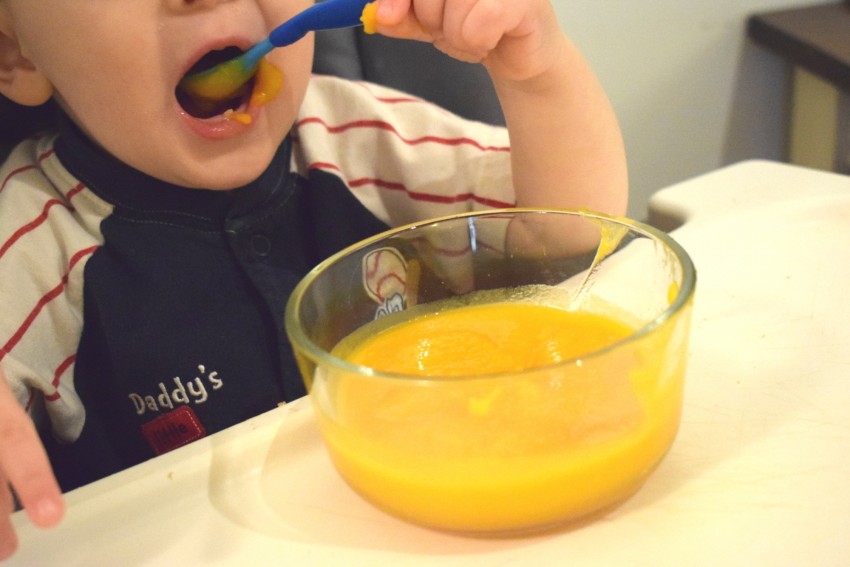
Mother feeds baby boy with a spoon porridge.
Shutterstock/ElRoiBeech-Nut to stop selling baby rice cereal after finding high arsenic levels
In early June, Beech-Nut Nutrition issued a voluntary recall of two infant rice cereals with product codes 103470XXXX and 093470XXXX. The company also announced that it was exiting the infant rice cereal market.
“Beech-Nut is concerned about the ability to consistently obtain rice flour well-below the FDA guidance level and Beech-Nut specifications for naturally occurring inorganic arsenic,” the FDA said in the recall announcement.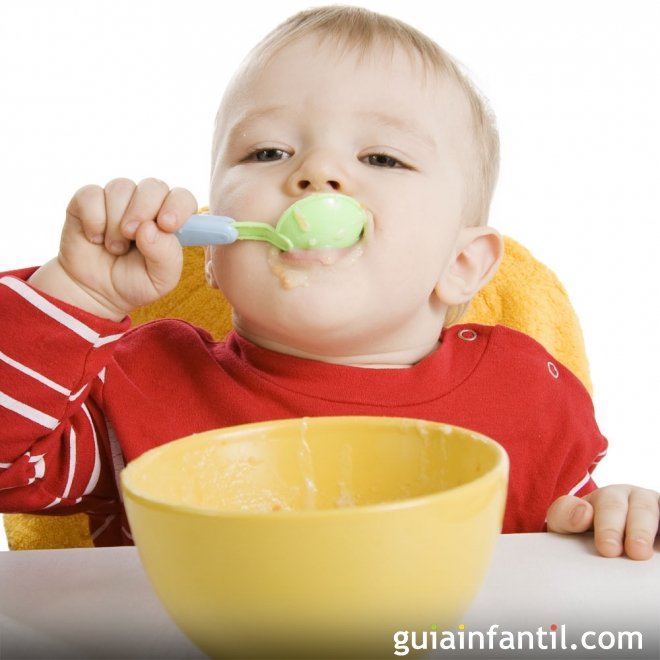
However, the subcommittee criticized Beech-Nut in the new report, saying the manufacturer had not gone far enough to protect the public.
“Beech-Nut only recalled two of its six products that tested over the limit,” the House subcommittee stated.
Beech-Nut Nutrition told CNN that “the assertion that Beech-Nut’s rice cereal recall was too narrow is incorrect” because it proactively withdrew all of its rice cereal products from supermarket shelves.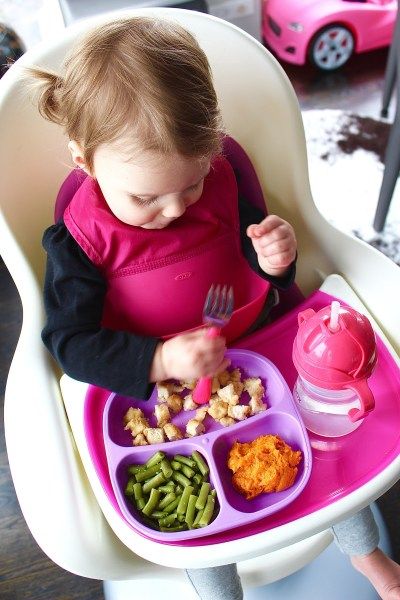
“Beech-Nut has taken a leadership role and is the first and only national brand to commit to being a fully rice-free brand across its full product portfolio,” the company said.
The subcommittee report was also critical of Gerber.
“Gerber was even worse (than Beech-Nut) —it had two products test over the 100 ppb limit and took no action to tell the public or get them off the shelves,” the subcommittee stated.
A Gerber spokesperson told CNN that the FDA had retested the samples, and was unable to confirm the result by Alaska, adding that the FDA “confirmed to Gerber that no action was needed.”
“While the Subcommittee report notes proposed limits on specific heavy metals, those are based on proposed standards from the Baby Food Safety Act, which are not current law or regulation. All Gerber foods have and continue to meet all applicable guidelines and limits set by the FDA, the governing body for safety regulations in the food industry,” the spokesperson said.
In their original report released in February, the House subcommittee said three companies had failed to fully cooperate with the investigation.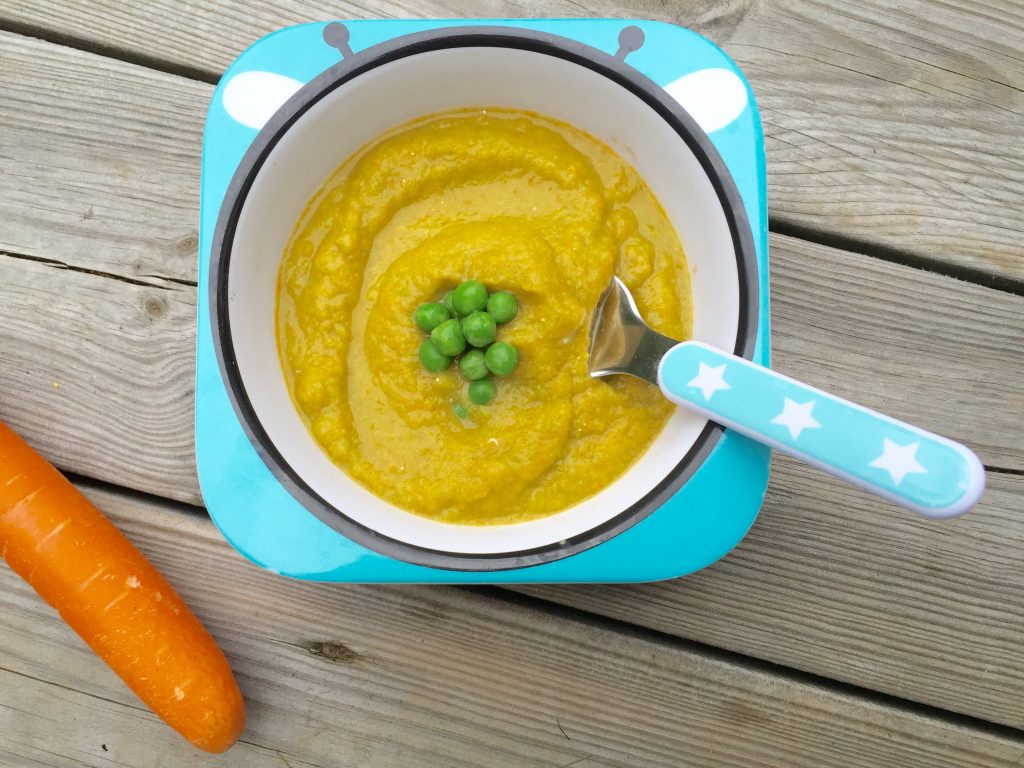 Those baby food manufacturer’s are:
Those baby food manufacturer’s are:
- Sprout Organic Foods, now owned by Canadian cannabis company Neptune Wellness Solutions
- Campbell Soup Company, which in March sold Plum Organics to Sun-Maid Growers of California
- Walmart, which manufactures Parent’s Choice baby food.
Shutterstock
Chemicals in plastics damage babies' brains and must be banned immediately, expert group says
Since February, those companies have cooperated to “varying degrees,” the new report said. Internal company documents provided by Sprout, Campbell and Walmart show similar failures to test or monitor their baby food products, investigators found.
Samples of Plum Organics baby foods tested between 2017 and 2019 contained levels of toxic heavy metals that greatly exceeded safety limits, the investigators reported.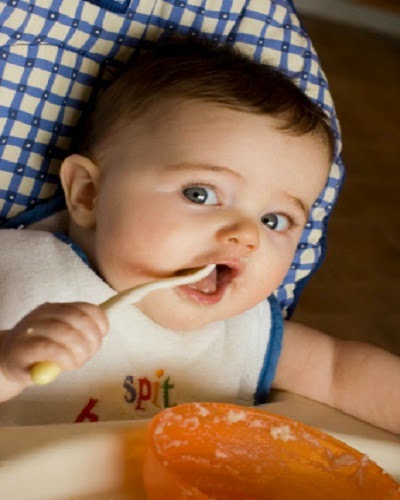
“Plum’s finished products contain up to 225 ppb inorganic arsenic. The majority of Plum’s baby foods also contain over 5 ppb lead, and nearly 40% exceed 5 ppb cadmium,” the subcommittee noted.
A Campbell spokesperson told CNN that despite selling the Plum Organics brand, they will continue to cooperate with the “subcommittee throughout this process” and will continue “support the FDA’s efforts in setting clear and specific science-based federal standards.”
Sun-Maid Growers of California told CNN in an email that it will “thoroughly examine the updated report from the Subcommittee on Economic and Consumer Policy and continue to work with the subcommittee – as well as the industry at large – to address these matters.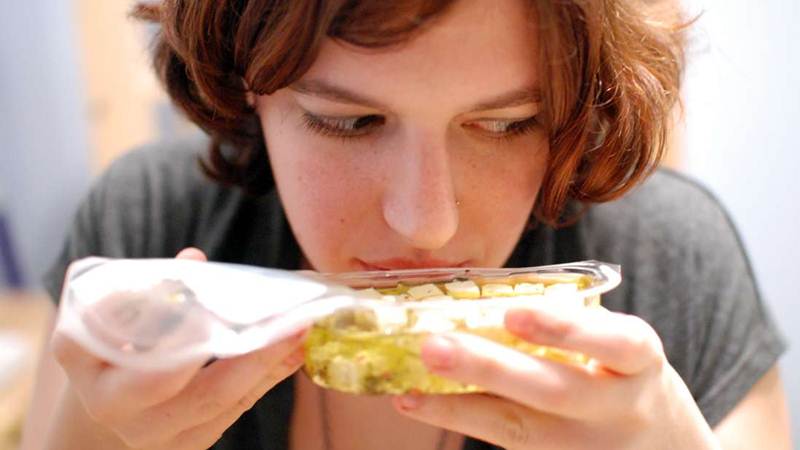 ”
”
In 2018, Walmart “abandoned” a standard in place since 2013 that set an internal inorganic arsenic limit of 23 parts per billion for the baby food it sells, the report said, “quadrupling it” to allow up to 100 parts per billion.
“Walmart offered no justification for its extreme course reversal on protecting babies’ neurological development,” the report stated.
Walmart’s senior director of national media relations, Randy Hargrove, told CNN that the company had “always required that our suppliers’ products meet the guidelines established by the FDA.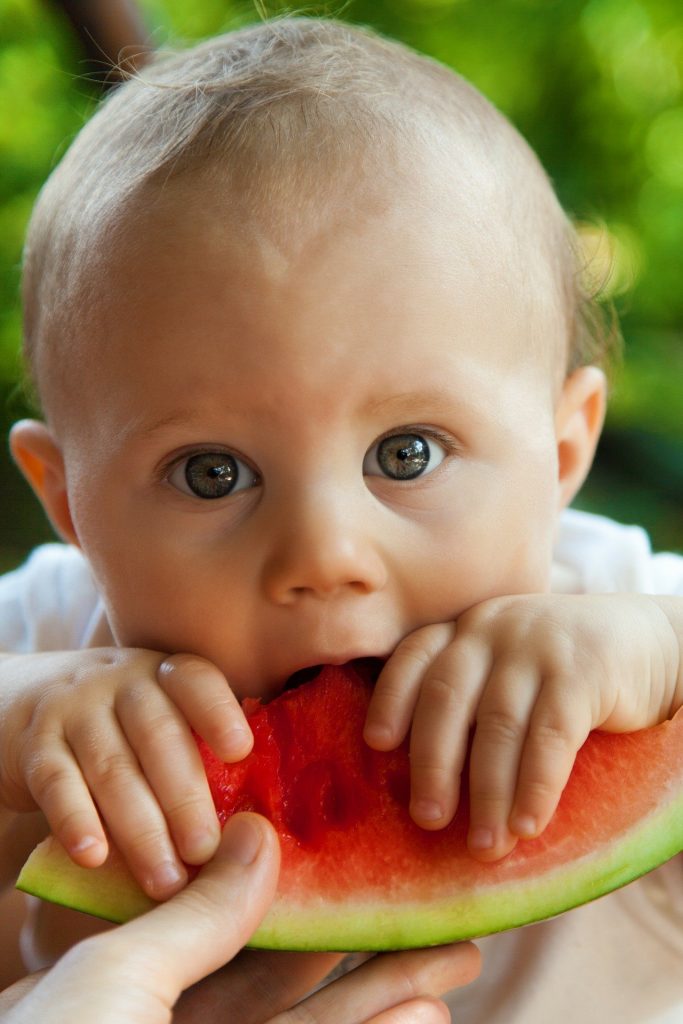 Our specifications have always been aligned with or below the FDA requirements for naturally occurring elements and the FDA noted in April that its testing shows that children ‘are not at an immediate health risk to exposure.’ “
Our specifications have always been aligned with or below the FDA requirements for naturally occurring elements and the FDA noted in April that its testing shows that children ‘are not at an immediate health risk to exposure.’ “
Shutterstock
Chemicals in plastics damage babies' brains and must be banned immediately, expert group says
In the April release cited by Walmart, the FDA also noted that research has shown “reducing exposure to toxic elements is important to minimizing any potential long-term effects on the developing brains of infants and children.”
Finally, investigators found Sprout’s testing practices “to be the most reckless among baby food manufacturers,” the report stated, because it only requires yearly testing for toxic metals and fails to test their finished products.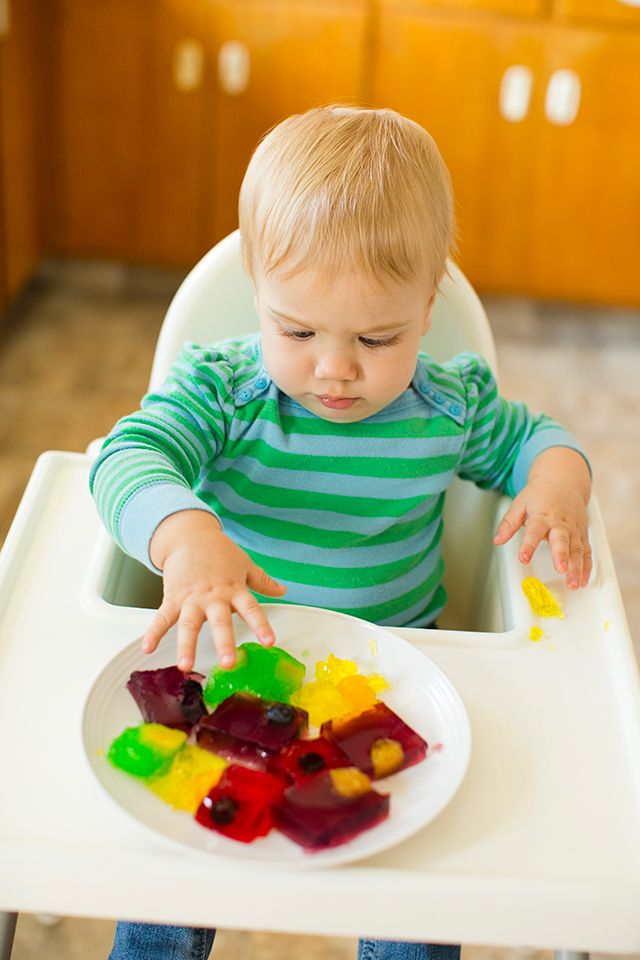
Sprout has not responded to a CNN request for comment on the new report. But on its website, Sprout says that it is ready to make any changes to our “sourcing or processing systems that may be advised by the FDA,USDA, or other relevant regulatory bodies. Sprout will always comply with regulatory guidance and continue to monitor developments closely.”
In both reports, the subcommittee recommended the baby food industry voluntarily test the final product to be sold and address the problem of toxic metals in baby food by phasing out ingredients that are high in toxic heavy metals.
hm baby solid food_00000924.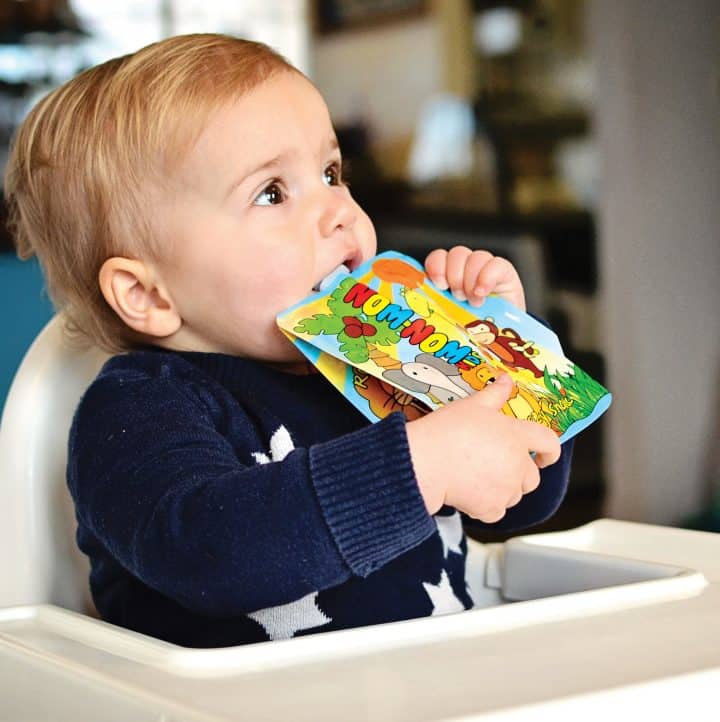 jpg
jpg
New legislation would reduce toxic heavy metals in baby food
“Based on my Subcommittee’s findings, I’m urgently calling on the baby food industry to immediately end harmful practices and conduct finished-product testing,” Krishnamoorthi said in the statement.
In addition, the subcommittee is urging the FDA to move faster in its efforts to establish specific regulations and mandate testing of final baby food products, not just ingredients.
In March, the FDA told baby food manufacturers they must consider toxic chemicals when they test their baby food for potential hazards, but the agency was criticized for not quickly setting concrete rules to remove toxic heavy metals from all baby foods.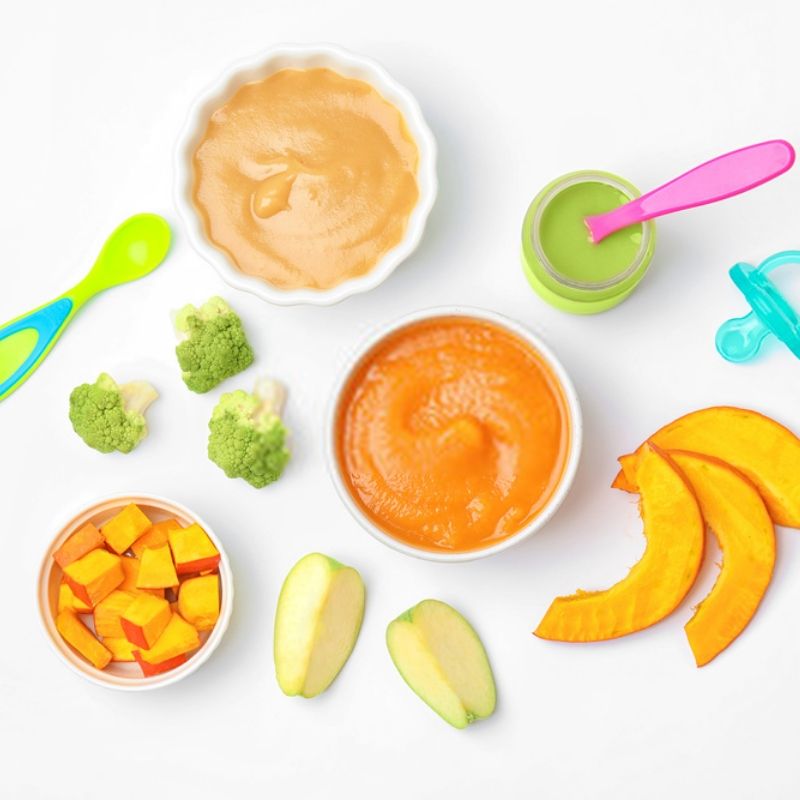
“We have been working closely with FDA on regulations, and this report highlights the need for the agency to accelerate its proposed timeline for publishing them,” Krishnamoorthi said.
However, there are potential downsides to moving too quickly on regulations, the FDA said.
“While we understand that people may want rapid changes, it is crucial that measures to limit toxic elements in foods do not have unintended consequences—like limiting access to foods that have significant nutritional benefits by making them unavailable or unaffordable for many families,” a spokesperson told CNN.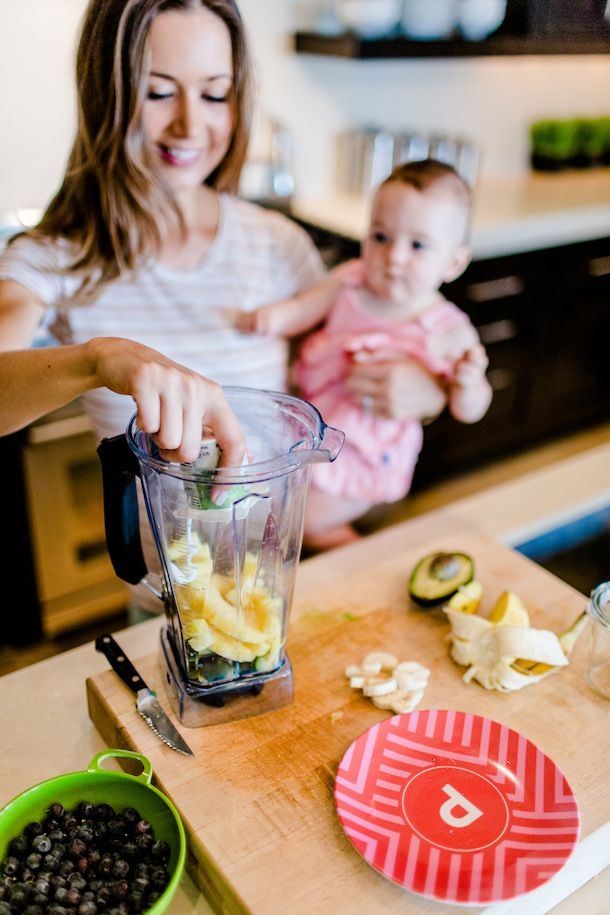
Parents can act as well, experts say, by pushing their representatives to support the proposed Baby Food Safety Act or by refusing to purchase baby foods from manufacturers who do not comply with the safety recommendations.
Parents can also try to avoid foods, such as rice, that typically absorb more heavy metals from the soil. The 2019 investigation by Healthy Babies Bright Futures found cereal and rice-based snacks like puffs had the highest arsenic levels.
When rice is served, Healthy Babies’ Houlihan suggests cooking the rice in two steps:
- Boil 1 cup of rice with 4 cups water for 5 minutes
- Pour into a colander and discard the water
- Cook drained rice with 2 cups fresh water over low to medium heat, covered, until cooked.
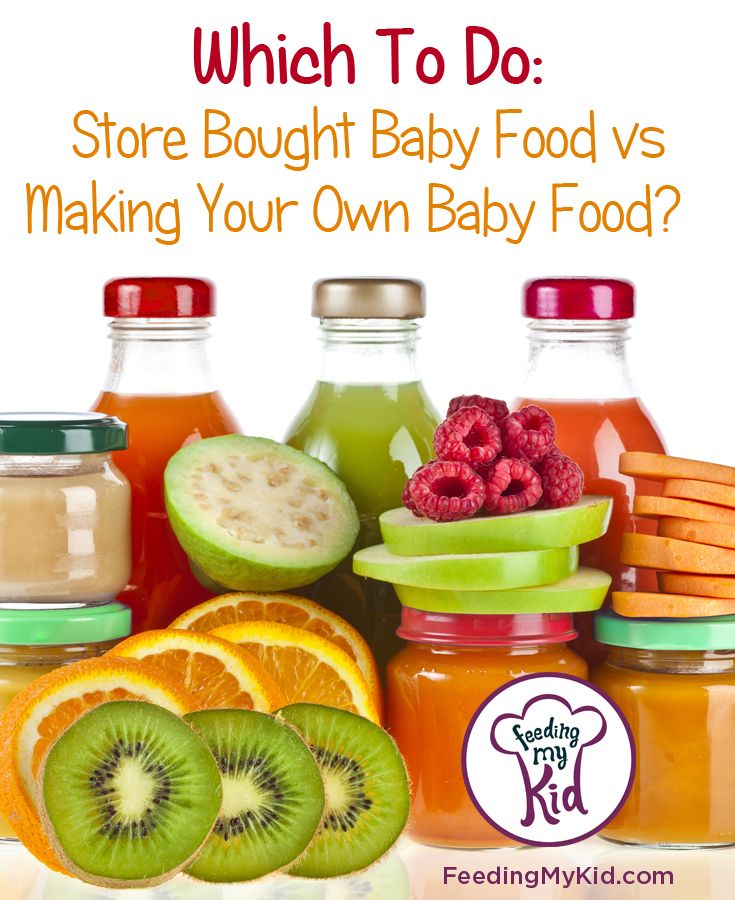
Using this method “can remove up to 70 percent of the arsenic while still preserving some of the nutrients,” Houlihan said.
Mother feeds baby boy with a spoon porridge.
Shutterstock/ElRoiNo added sugar for babies, US advisory panel recommends
The group’s investigation also found carrots and sweet potatoes to be among those most contaminated with lead and cadmium. But don’t eliminate carrots and sweet potatoes entirely, Healthy Babies’s Houlihan advised, because they are full of vitamin A and other key nutrients.
Instead, “serve a variety of fruits and vegetables, instead of serving the same thing every day. This avoids accidentally concentrating any particular contaminant in a child’s diet,” Houlihan advised.
This avoids accidentally concentrating any particular contaminant in a child’s diet,” Houlihan advised.
The Healthy Babies analysis found parents can reduce their baby’s risk of exposure to lead and cadmium by 73% by taking these steps.
When carrots, sweet potatoes and other root vegetables are served, be sure to peel them to remove heavy metals on the surface, she said, adding that “organic and homemade baby foods also contain heavy metals, so the steps above apply to those foods as well.”
Clarification: This story has been updated to reflect that while Campbell owned Plum Organics during the time period of the investigation, Plum Organics has since been sold.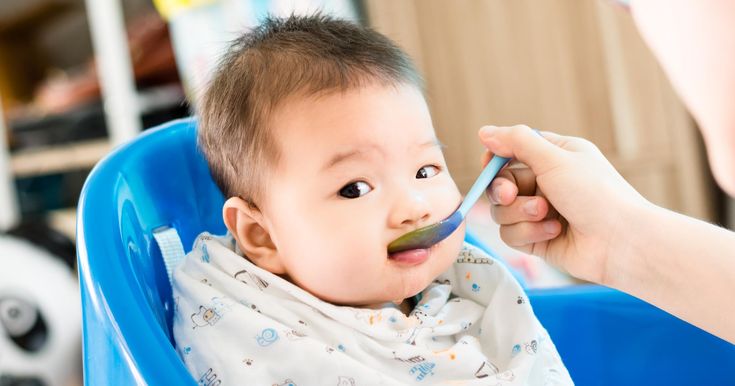
Expert - don't be afraid to buy baby food in supermarkets -
How and what to feed our children? Experts repeat that children should not eat "food from our table." Why? This was told to us by the head of the baby nutrition department of the Research Institute of Nutrition of the Russian Academy of Medical Sciences, Doctor of Medical Sciences, Professor Igor Kon.
- Igor Yakovlevich, why can't children eat "adult food"?
- They still have an immature digestive system. It is very labile, and the slightest unbalanced intake of nutrients can lead to a failure in regulation, a violation of protective systems. Therefore, it is important that children receive as much as they need and in the right proportion. Of course, the older the child, the weaker this dependence: it is most pronounced in 1-2 years of life, therefore, there are special requirements for products for young children. If a child eats "adult" food, it can cause indigestion and allergic reactions.
If a child eats "adult" food, it can cause indigestion and allergic reactions.
- Parents used to proudly talk about how their baby "kneads" bread, sausage...
- This is still the case today. Unacceptably early, from 9-18 months, children already eat "adult food". Bread is still okay, but everything else - spicy, gourmet dishes from the common table - comes from sanitary illiteracy.
- And what is especially harmful to give to children?
- Carbonated drinks, acidic, high fat foods. For preschoolers and children of primary school age, we generally recommend only stewing and baking, without frying.
The taste of the child is not spoiled
- What is the difference between baby food and adult food, besides the content of salt, fat, etc.?
- Safety requirements, first of all, control over the residual amount of toxic elements. There are more stringent requirements for baby food, given that the child's body's defenses are reduced, so we must protect him from the so-called contaminants - food contaminants.
There are more stringent requirements for baby food, given that the child's body's defenses are reduced, so we must protect him from the so-called contaminants - food contaminants.
- Many mothers still think that since the food is "in a container", it means that it is canned food, and it is better to cook everything yourself.
- They would be right if there was a guarantee that what we do at home is safe. So I picked apples on my plot, but what is the content of nitrates in them, what fell out with the rain, what is in the soil in the neighboring plot, what is the farmer's field watered with, etc.? Unknown! Maybe homemade applesauce will be tastier, but whether it’s healthier is not a fact. With baby food, we follow the line of reinsurance, like the whole world. Moreover, "packaging" is, in addition to a guarantee of safety, the absence of salt, the correct consistency, grinding.
- Why does "baby" meat puree have such a special taste?
- It is without salt and spices, extractives have been previously removed from it.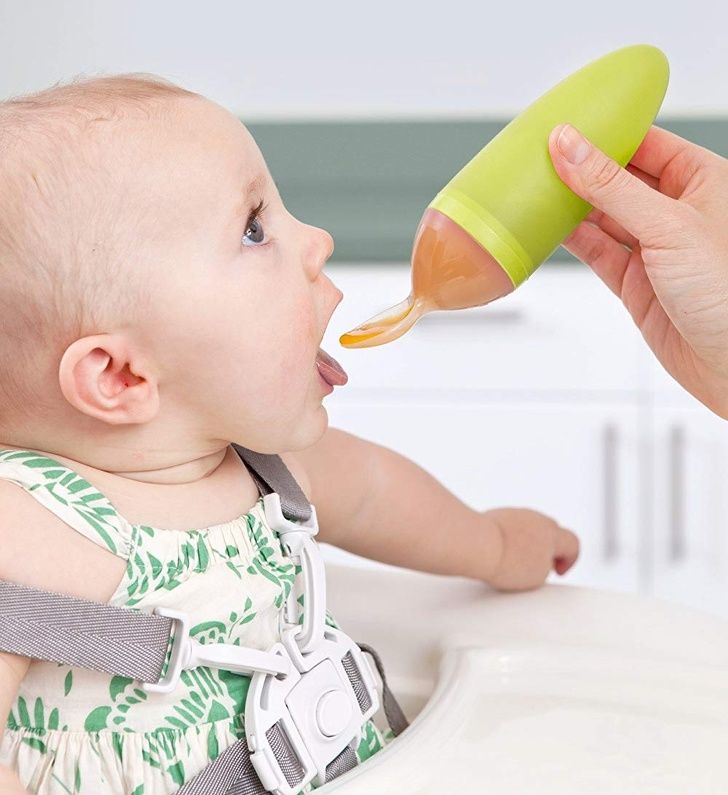 But the child's taste is not spoiled by sweet and salty foods, he does not know the difference.
But the child's taste is not spoiled by sweet and salty foods, he does not know the difference.
- If we talk about industrial products, what should be in the children's diet?
- All types of food that are produced: dairy products, juices, fruit, meat, meat and vegetable, fish, fish and vegetable purees, cereals, cereals.
- What are the requirements for baby food packaging?
- Requirements for containers, technological process, and sanitary conditions at baby food manufacturers are very strict. Raw materials are tested for a host of different toxins and impurities. However, the studies that we conduct at the Institute of Nutrition rarely reveal deviations.
- Moms often worry that baby food in the store is not in the refrigerator.
- There is baby food that should be in the refrigerator (milk, sour milk), but there is something that should not.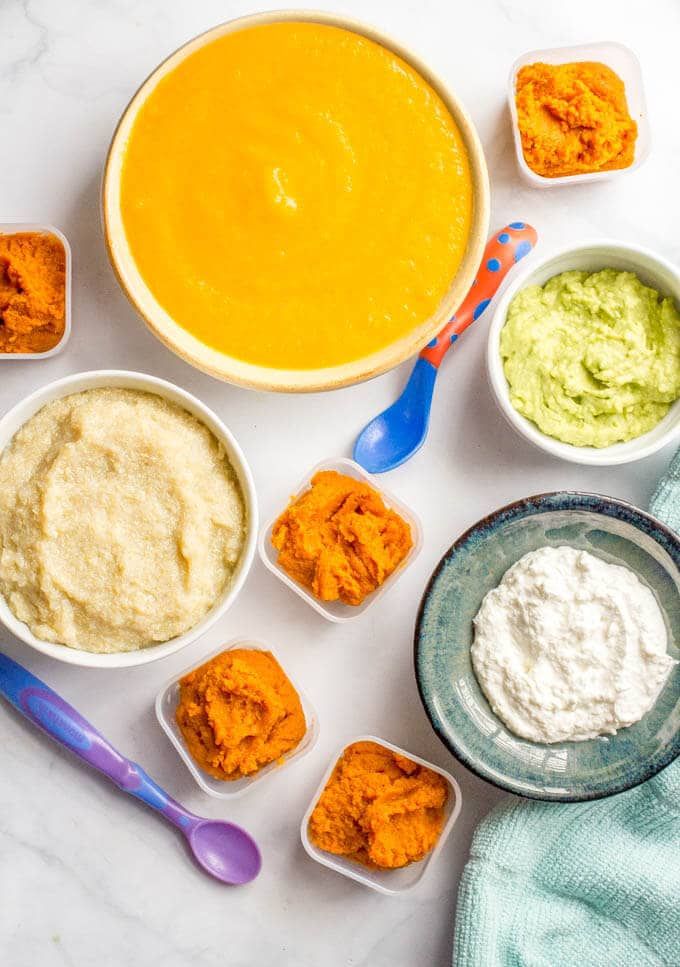 Juices, cereals and purees, for example, in closed cartons should not be kept refrigerated. The technological process, which includes aseptic filling, container sterilization and hermetic sealing, ensures the preservation of the useful properties of the product even without a refrigerator.
Juices, cereals and purees, for example, in closed cartons should not be kept refrigerated. The technological process, which includes aseptic filling, container sterilization and hermetic sealing, ensures the preservation of the useful properties of the product even without a refrigerator.
- What is the food quality of our producers?
- The good ones are no worse than the Western ones. But there are also bad Western ones. Everything is mixed up today.
- What should you look for first when buying food for a child?
- Expiry date first. Secondly, on the composition. If the mother knows that the child is allergic to a particular product, then simply do not take it.
It's interesting to know
Modern technologies help to preserve all the valuable properties of natural products for a long time, including those intended for baby food.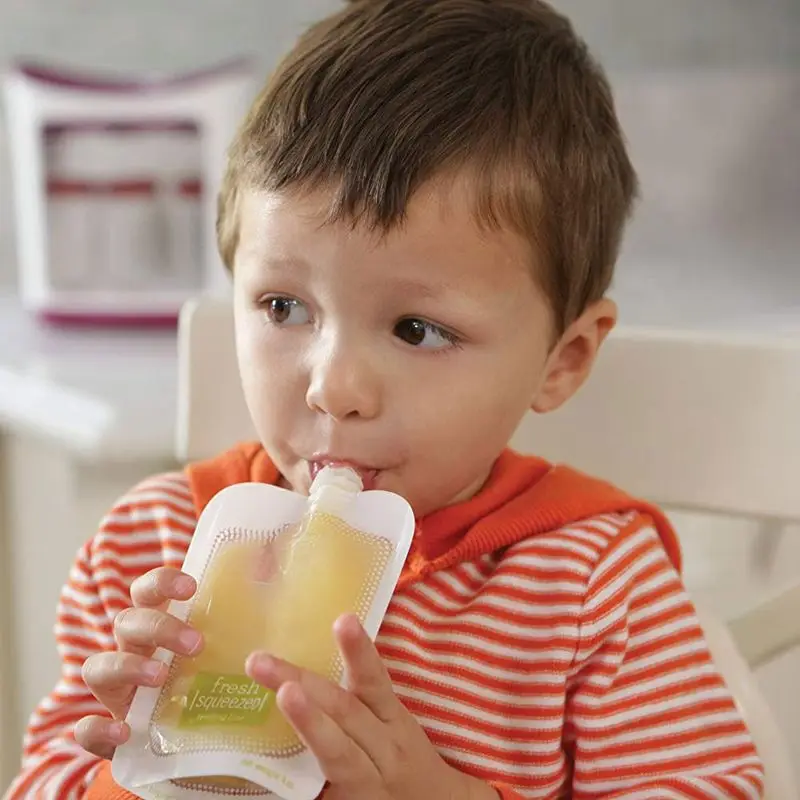 Long-term storage is possible due, firstly, to the special protective properties of the packaging material and, secondly, to the sterile conditions of its filling.
Long-term storage is possible due, firstly, to the special protective properties of the packaging material and, secondly, to the sterile conditions of its filling.
Today, food manufacturers have learned to use an advanced method of heat treatment - UHT. In short, ultra-pasteurization is instant heating. Milk, juice or puree from vegetables or fruits of the highest quality is subjected to short-term (3-4 seconds) heating to 135-137 degrees Celsius and then immediately cooled to room temperature. Microorganisms that cause fermentation are destroyed in the product, while the natural useful composition is preserved to the maximum.
As for the subsequent long-term storage of liquid products, scientists have developed a unique package that allows you to keep the product fresh and healthy for a long time. This packaging is known by the name of the company that introduced it - Tetra Pak. The package consists of six layers, which, in addition to cardboard, also include thin layers of aluminum foil and polyethylene.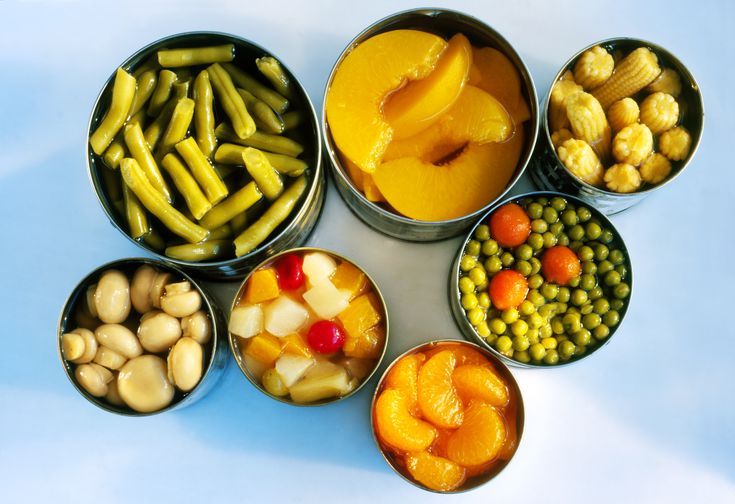 Such hermetic packaging completely protects food from light (that is, oxidation that destroys vitamins) and, in addition, there is no air inside (which means there are no bacteria), so the packaging allows you to preserve the beneficial qualities of the product for a long time.
Such hermetic packaging completely protects food from light (that is, oxidation that destroys vitamins) and, in addition, there is no air inside (which means there are no bacteria), so the packaging allows you to preserve the beneficial qualities of the product for a long time.
That's the whole secret. And no chemistry, which is extremely undesirable for young gourmets.
Another important argument in favor of cartoned baby food is the safety of use. You can safely give a cardboard box into the baby's hands - it will not break. In addition, cardboard packaging is environmentally friendly and recyclable. However, remember that UHT product will only stay fresh as long as it is in sealed packaging. Once opened, it must be used immediately.
346
Sport
rating of the top 10 Russian and foreign brands with reviews according to KP
Goods for children are always under special quality control.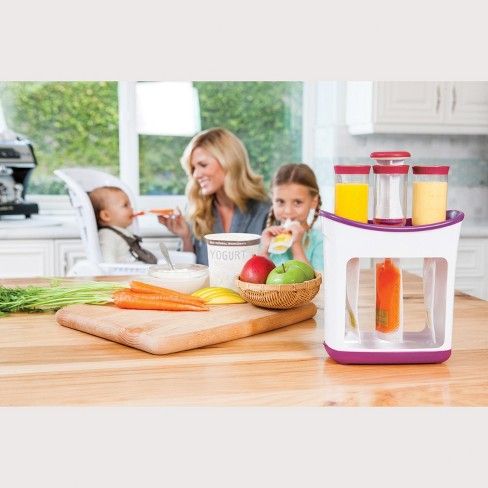 Including food. After all, food for a baby is not only a way to satisfy hunger, but also acquaintance with different tastes and a guarantee of healthy development (1). Today there are many different brands. Among them, we selected the best manufacturers of baby food, based on the reviews of parents and expert opinions.
Including food. After all, food for a baby is not only a way to satisfy hunger, but also acquaintance with different tastes and a guarantee of healthy development (1). Today there are many different brands. Among them, we selected the best manufacturers of baby food, based on the reviews of parents and expert opinions.
Rating of the top 5 Russian baby food manufacturers according to KP
There are many popular brands among Russian baby food manufacturers. Basically, various purees, juices, cereals and dairy products are presented on the market. There are also formulas for babies, but in smaller quantities. The popularity of food is due to high quality and rather low (in comparison with foreign analogues) price.
1. "Agusha"
"Agusha". Photo: yandex.market.ru Agusha is one of the most popular baby food manufacturers in Russia. The trademark appeared in 1992 and has a wide range of products for children of all ages. Newborns are offered powdered milk formulas, babies from 4 months - a variety of purees, sour-milk products, water, older children - ready-made cereals (both dairy and non-dairy), juices, fruit drinks, compotes and fruit bars for a snack.
Due to the availability and variety of products, the manufacturer is confidently holding onto the Russian market. The safety and quality of Agushi is also confirmed by some neutral studies. For example, fruit cottage cheese, as well as kefir from this brand, received the highest rating from Roskachestvo (2, 3).
There are mixtures in the product line; a wide range of.
High price for some items.
2. FrutoNyanya
FrutoNyanya. Photo: yandex.market.ruFrutoNyanya baby food brand products are distinguished by a wide range and wide distribution in stores. Among the products of the brand you can find: a variety of cereals (with additives in the form, for example, pieces of fruit or without them), vegetable, fruit and meat purees, water, dairy products, juices, fruit drinks and nectars, snacks. For children prone to acute reactions to certain products, a special line of hypoallergenic food is offered.
Some of the brand's products have received high ratings from Roskachestvo, for example, biocurd, buckwheat porridge (4, 5).
Nutrition from this brand is designed for both the first complementary foods and for babies after a year. The composition contains salt and sugar, which are not recommended for children under one year old.
Main characteristics
| Producer | Progress |
| Assortment | purees, drinks, soups, snacks, cereals, snacks, water |
| Recommended age | from 0 months |
| Foundation year | 2000 |
Pros and cons
There are hypoallergenic products.May contain allergenic ingredients (eg sugar).
3. "Grandmother's Lukoshko"
"Grandmother's Lukoshko". Photo: yandex.market.ru The manufacturer has been present on the Russian market since 1999. The main product is a variety of purees, which are available in glass jars and soft packs. For example, apple puree from this brand received the highest rating from Roskachestvo in all analysis criteria and was awarded the Quality Mark (6).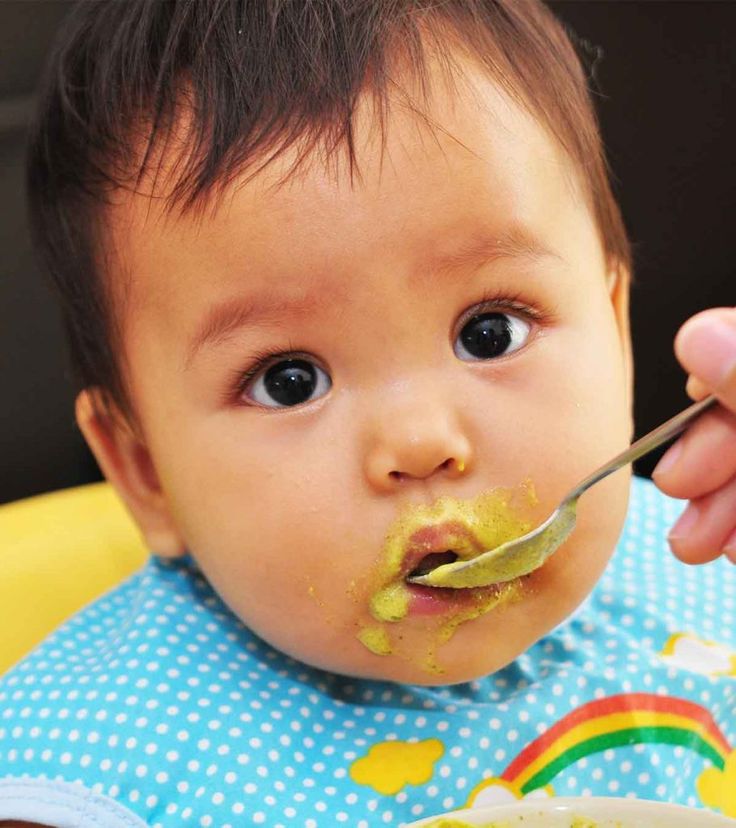
For older children, prepared meals, meatballs, healthy snacks such as fruit lozenges and biscuits are available. Also, "Babushkino Lukoshko" produces children's herbal teas. Salt in some products is not always welcomed by parents.
The main characteristics
| manufacturer | "Sivma" | |
| Assortment | puree, finished dinner, drinks, fruit pastilles | from 4 months |
| Founded | 1999 |
Pros and cons
Relatively low price in the segment; varied products.
There may be undesirable auxiliary components in the formulation (eg salt).
4. "Subject"
"Subject". Photo: yandex.market.ru "Theme" offers products for children from 4 months to 3 years. The assortment includes a variety of meat, fish and vegetable purees, dairy products, ready meals and juices. But fruit purees are not presented. Packaging 一 is one of the distinguishing features of the brand. Thanks to special tin cans, the products are reliably protected from sunlight, which prolongs the shelf life. Also, many products of the brand are available in non-spill packages, so it is convenient to take them with you on the road. According to the results of the research, cottage cheese and juice "Theme" received the highest rating from Roskachestvo (7, 8).
Thanks to special tin cans, the products are reliably protected from sunlight, which prolongs the shelf life. Also, many products of the brand are available in non-spill packages, so it is convenient to take them with you on the road. According to the results of the research, cottage cheese and juice "Theme" received the highest rating from Roskachestvo (7, 8).
5. Diaper
Diaper. Photo: market.yandex.ruAll ingredients for production are supplied from our own farm. The manufacturer claims that thanks to this, it is possible to set fairly low prices for products.
The potential buyer is offered fruit and vegetable purees (some with cottage cheese), soups, various juices and fruit drinks, as well as water. Some of the products are hypoallergenic. The composition does not contain unnecessary components: salt, sugar and preservatives. Meat and fish products are not represented in the product line.
Rating of the top 5 foreign manufacturers of baby food according to KP
There are many foreign companies that produce baby food on the Russian market.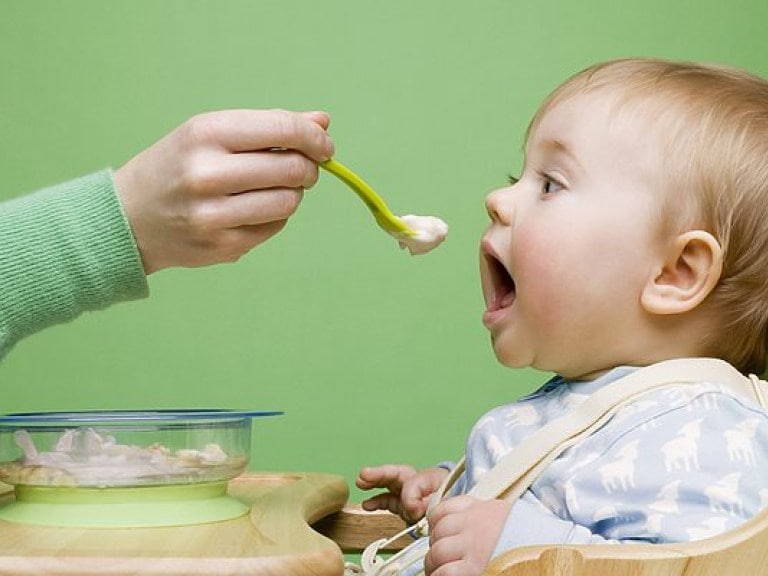 A century of history, many years of experience and a good reputation helps to supply the market with quality products, which are preferred by many parents.
A century of history, many years of experience and a good reputation helps to supply the market with quality products, which are preferred by many parents.
1. Gerber
Gerber. Photo: yandex.market.ruThe assortment of the American manufacturer includes products for children from 4 months. In supermarkets and online sites, you can find vegetable and fruit purees, cereals, healthy snacks, juices, and desserts (cottage cheese treats, smoothies, and others). Hypoallergenic food is also provided. For example, dairy-free buckwheat porridge of this brand is highly appreciated by Roskachestvo experts, who noted the safe composition of the product without dangerous and harmful substances, including no added sugars (
Pros and cons
Hypoallergenic products; natural composition; high quality.
High price in the baby food segment.
2. HiPP
HiPP. Photo: yandex.market.ru German manufacturer's products are suitable for children from birth.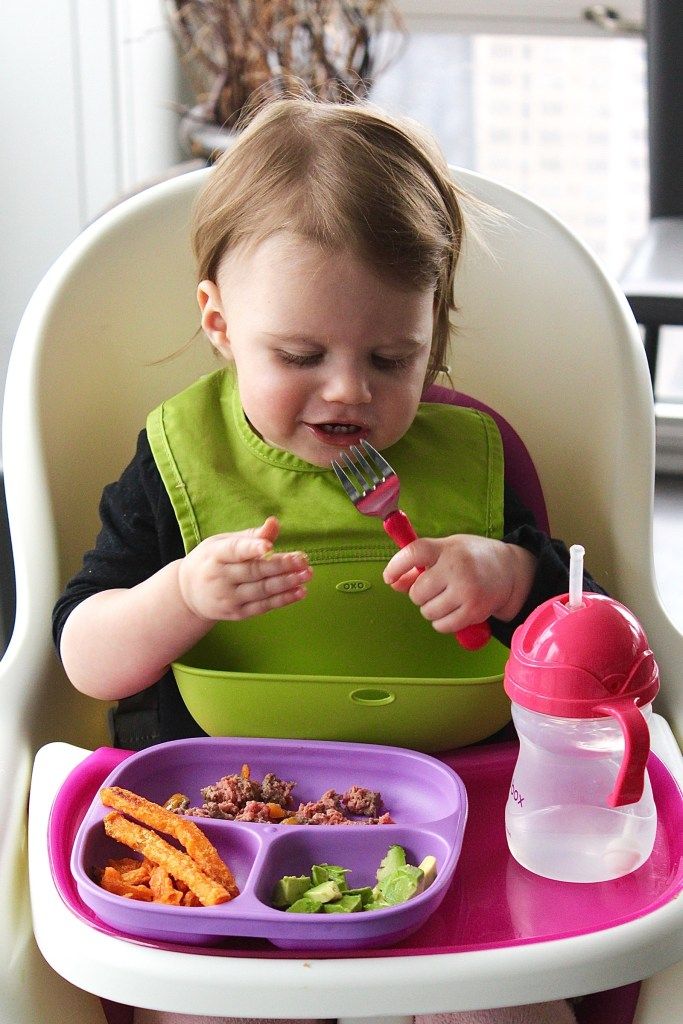 Infants are offered hypoallergenic powdered milk formulas enriched with vitamins. For feeding - various purees, cream soups, cereals, and as a snack for older children - snacks and dairy desserts.
Infants are offered hypoallergenic powdered milk formulas enriched with vitamins. For feeding - various purees, cream soups, cereals, and as a snack for older children - snacks and dairy desserts.
Pros and cons
Natural composition; There are baby formulas in the assortment.
High price of products.
3. Fleur Alpine
Fleur Alpine. Photo: yandex.market.ruNatural baby food of premium quality. The range includes purees, cereals, cookies and juices - both regular and for children prone to allergies or intolerant to gluten. In addition to the usual products, the manufacturer offers olive oil (from 6 months) and sauces (from 3 years).
From time to time, the products of this brand come under the attention of experts from Roskachestvo and Roskontrol. For example, Three cereals porridge showed excellent results: a good composition with dietary fiber and no foreign impurities, the appropriate taste, color and smell (10), and buckwheat porridge meets the advanced standards of Roskachestvo, except for the increased protein content (11).
Not all products presented on the official website can be bought in a regular store. However, they can be purchased on marketplaces.
High price; Not all brand products are easy to find on offline sites.
4. Semper
Semper. Photo: yandex.market.ruThe Swedish company offers a wide range of products for children of all ages. Dry milk formulas are suitable for newborns, and there are even specialized ones that are best used for constipation. Some of them are designed for babies older than six months. For crumbs older than 4 months, the manufacturer offers a variety of vegetable, meat, fish and fruit purees, cereals, juices and children's tea with vitamins. In addition to the usual products for children, there are wellings — oatmeal and multi-cereal porridges with natural additives, cookies, and meatballs.
Pros and cons
There are mixtures in the product line interesting combinations of flavors.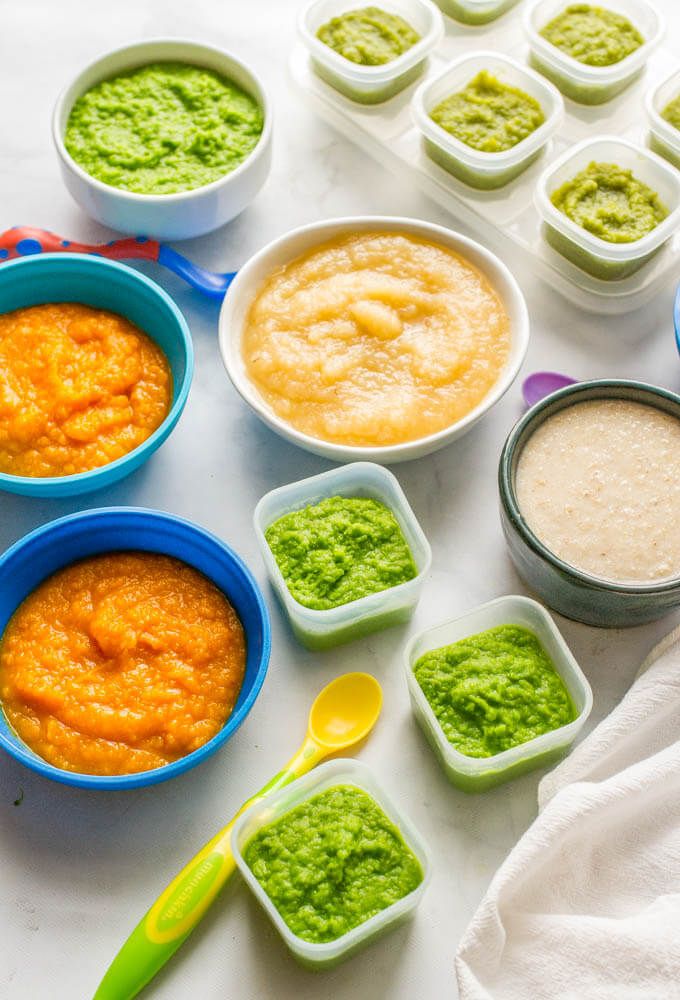
High price in the segment; the presence of starch in the puree; the product according to BJU may differ from that stated on the package.
5. Heinz
Heinz. Photo: yandex.market.ruThe American food company presents a wide range of products at affordable prices. There are fruit, vegetable and meat purees, cereals (dairy and non-dairy), soups and drinks. As a healthy snack for babies from 5 months, special cookies are suitable, and fruit and cream puddings will be a great dessert for older children. You can also find a special vermicelli that will suit crumbs from 6 months. The manufacturer's porridges received the highest rating from Roskachestvo (13). However, some products contain sugar and starch, which many parents of babies do not approve of.
Some products contain sugar and starch.
How to choose the right baby food
A child's menu may differ from another baby's diet, not only due to age, but also due to health conditions (for example, a tendency to constipation or a dairy allergy) and personal preferences.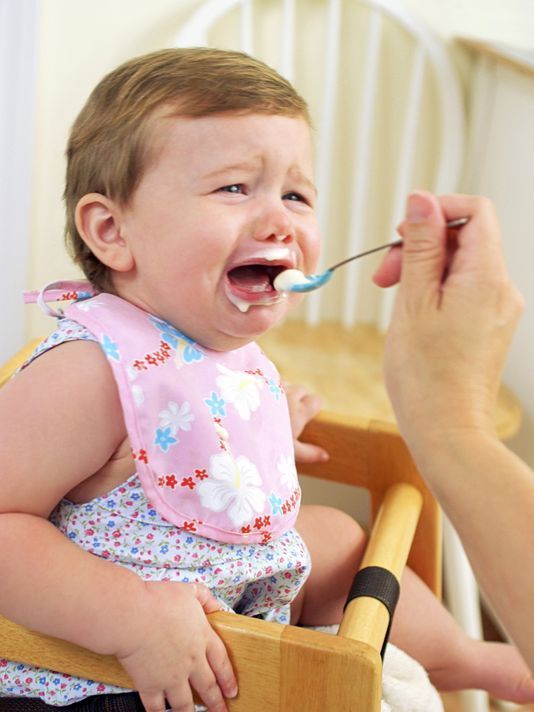 However, the first thing to consider is age. It’s also important to keep in mind that your baby’s diet should be free of added salt and sugar (14). Certain positions deserve some explanation.
However, the first thing to consider is age. It’s also important to keep in mind that your baby’s diet should be free of added salt and sugar (14). Certain positions deserve some explanation.
Milk formulas
Designed for feeding babies. In fact, they are designed to become an alternative to mother's milk. For the full development of the crumbs, it is necessary that vitamins and trace elements are present in the composition.
Canned puree
Introduced from 4 months. There are fruit, vegetable, meat and fish options. Combinations are also possible. For the first feeding, it is recommended to choose one-component purees from vegetables or fruits.
Porridges
Porridges, as well as mashed potatoes, are recommended to be offered to a baby from 4 months. Thanks to the special processing of cereals, baby porridge is easily boiled, which significantly saves cooking time.
Nectars, juices
You can give your baby juice or nectar from the age of 4 months. As long as it doesn't contain sugar. If available, it is better to wait at least up to 1 year.
As long as it doesn't contain sugar. If available, it is better to wait at least up to 1 year.
Reviews of doctors about manufacturers of baby food
一 Baby food is becoming an object of special attention on the part of the state and parents, 一 says pediatrician Ekaterina Mikhaltsova . - The main advantages of industrial products and dishes are ease of use, balanced composition and minimal cooking time. However, you must strictly follow the age recommendations and cooking rules indicated on the labels.
- Dairy products and baby food in particular are complex production products where quality control is essential at all stages. Therefore, it is better to trust large manufacturers, - explains sanitary doctor Nikolai Dubinin . - It is important to pay attention to the composition and, before offering the child, taste the food yourself. In general, doctors agree that commercially produced baby food is no worse than home-cooked.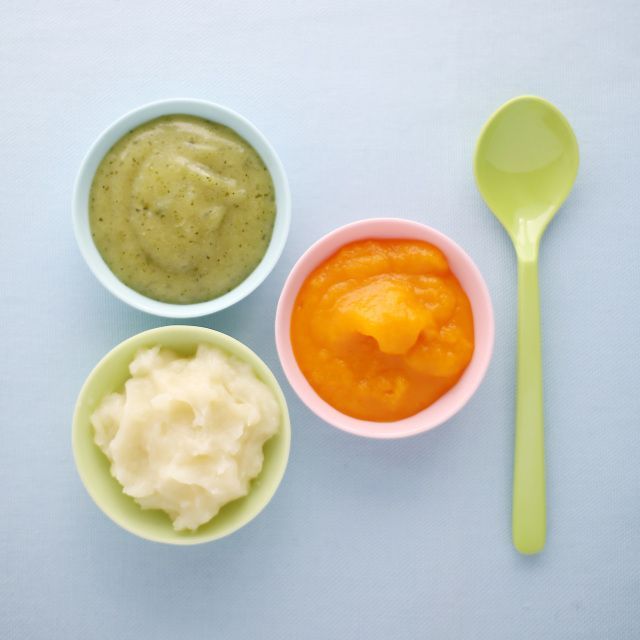 And some are even better, due to supplements in the form of vitamins and trace elements.
And some are even better, due to supplements in the form of vitamins and trace elements.
Popular questions and answers
We answer the most common questions about baby food together with pediatrician Ekaterina Mikhaltsova and sanitary doctor, epidemiologist Nikolai Dubinin.
How to choose food for the first feeding?
Pediatricians recommend starting the first complementary foods with vegetable puree. Fruits contain a large amount of fructose, which can irritate the lining of the stomach and other organs of the gastrointestinal tract. Of course, the parent himself can boil and grind vegetables to a puree-like consistency, but it is easier to purchase products in the store, since baby food is made in compliance with special technologies, taking into account all the rules and regulations.
Another question is how to choose a brand among such a variety of baby foods. The best solution is to stick with a well-known brand.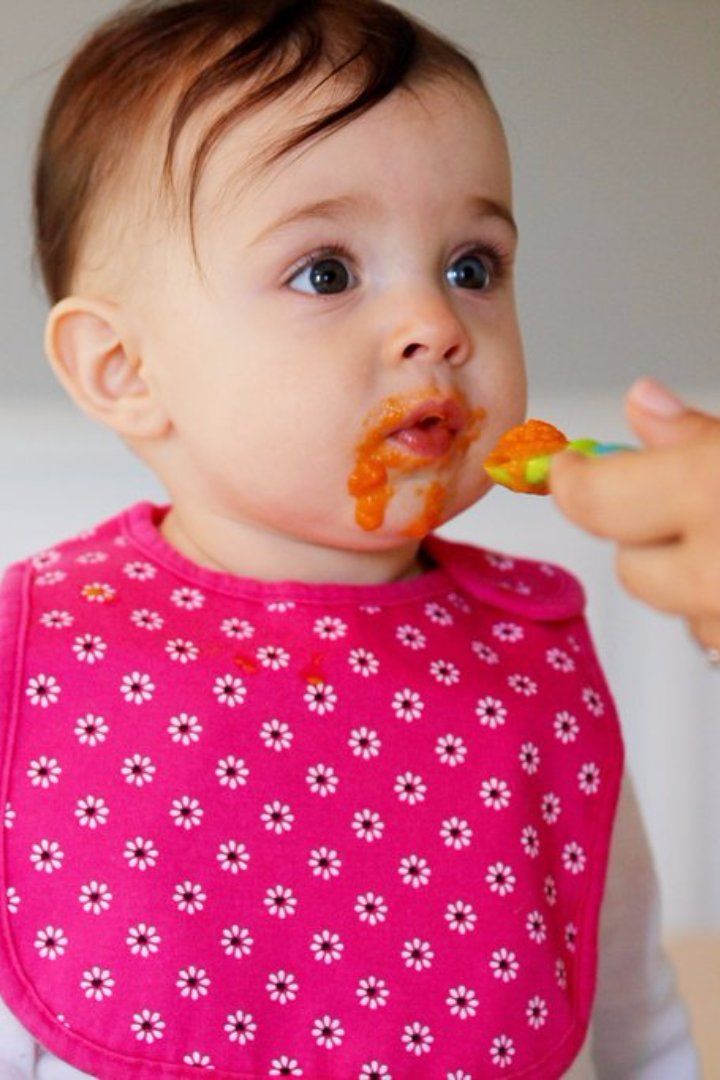 Large companies care about their reputation, and therefore strictly follow all established quality standards and do not violate production technology.
Large companies care about their reputation, and therefore strictly follow all established quality standards and do not violate production technology.
The next step is to study the information on the label, make sure the quality, evaluate the following indicators:
• Natural composition. Preservatives, salt, sugar and other ingredients must not be present in the composition (at least in products for children under 1 year old).
• Consistency (grinding quality). A good puree should be smooth and without lumps.
• Multi or single ingredient . The first puree should contain only one ingredient. The child should get used to a certain vegetable, after which it will be possible to introduce others, adding each one in turn, so that the baby gets used to everything separately.
• Hypoallergenic product. The composition must not contain ingredients that can cause an allergic reaction.
• Package integrity .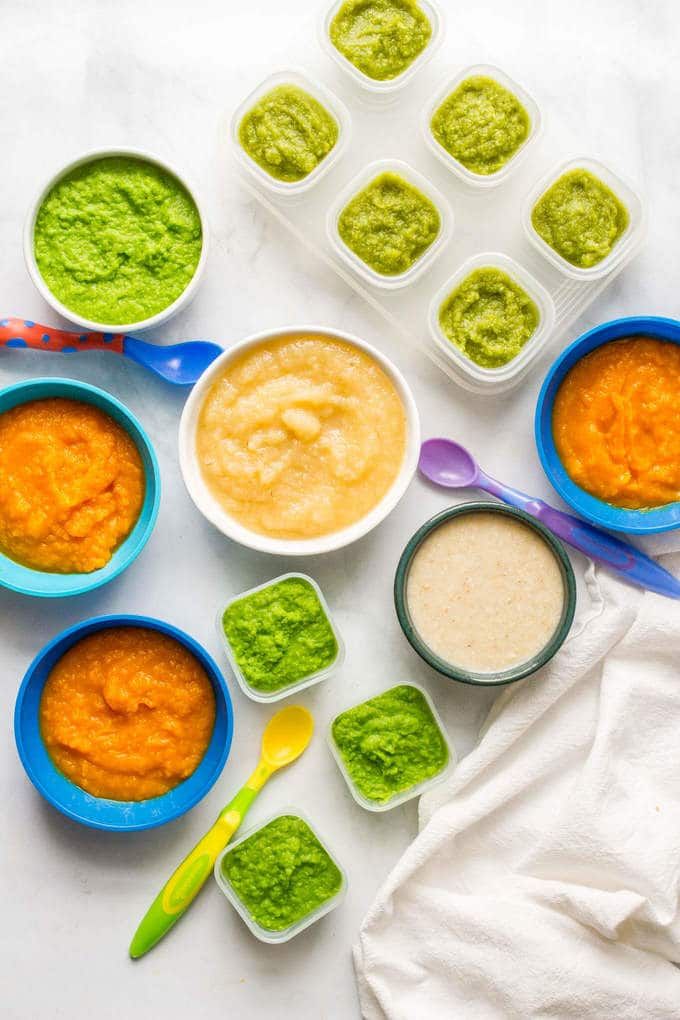 It is important to inspect the container in detail for dents, scratches or cracks (chips). Tightness must be observed. Don't forget to check the production date.
It is important to inspect the container in detail for dents, scratches or cracks (chips). Tightness must be observed. Don't forget to check the production date.
• Appropriate for the age of the child . The age for which this or that product is designed is usually indicated on the packaging in compliance with the recommendations of pediatricians.
When all these factors are taken into account, it can be said that the product is really suitable for the child and will not cause side effects (15).
Which of the Russian manufacturers should I pay attention to?
Baby food brand Agusha has been producing products for over 30 years. The assortment has everything you need for a complete diet for kids: dairy products, cereals, fruit, vegetable and meat purees, juices and compotes. The company produces safe, hypoallergenic, complete nutrition for children of all ages. High-quality substitutes for breast milk and subsequent complementary foods are also produced.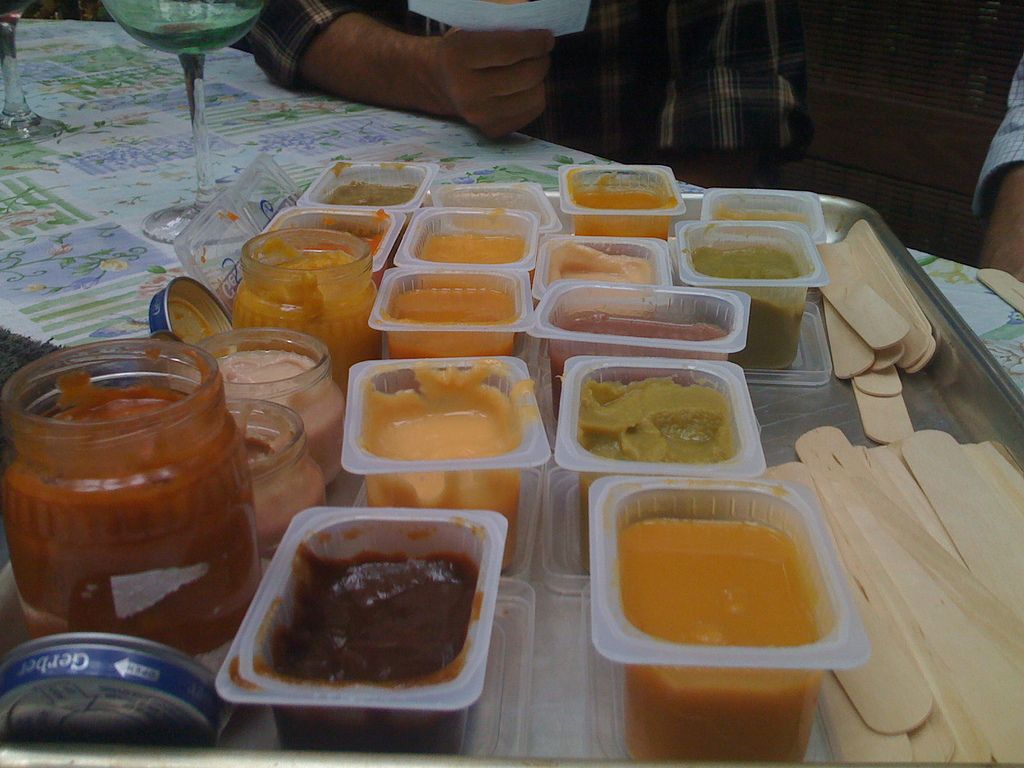 It is also recommended to pay attention to the manufacturers "FrutoNyanya" and "Theme".
It is also recommended to pay attention to the manufacturers "FrutoNyanya" and "Theme".
What composition should healthy baby food have?
When choosing puree in jars, pay attention to the composition. The ingredients should be natural, a good option (especially for younger kids) if the puree is a one-component puree - a fruit or vegetable plus water. Please note that the product does not contain salt, flour, starch, dyes and preservatives, and is not too diluted with water. The vegetable itself may contain starch, but its additional additives are very undesirable.
Sources
- Once again about baby food. Ladodo K. S. 2003.
- Roskachestvo rating. Children's cottage cheese "Agusha". URL: https://rskrf.ru/goods/tvorog-detskiy-fruktovyy-agusha-multifruktovyy-s-massovoy-doley-zhira-3-9/
- Roskachestvo rating. Children's kefir "Agusha". URL: https://rskrf.ru/goods/kefir-agusha-s-massovoy-doley-zhira-3-2-dlya-pitaniya-detey-starshe-8-mesyatsev/
- Roskachestvo rating.
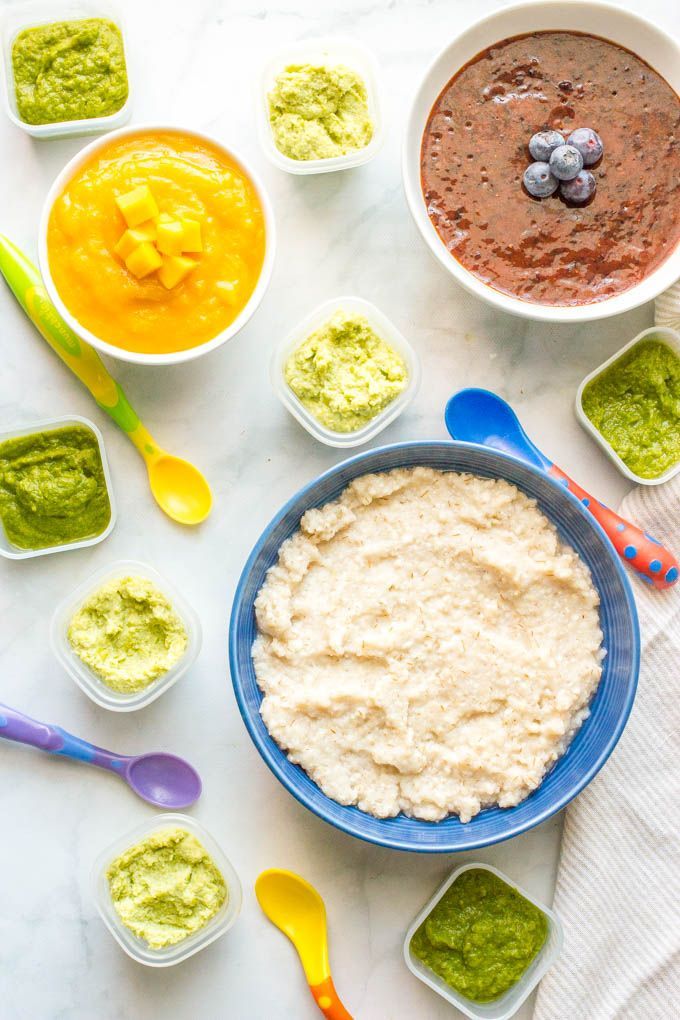 Biocurd "FrutoNyanya". URL: https://rskrf.ru/goods/biotvorog-frutonyanya-yabloko-obogashchennyy-vitaminom-d3-s-massovoy-doley-zhira-4-2-dlya-pitaniya-d/
Biocurd "FrutoNyanya". URL: https://rskrf.ru/goods/biotvorog-frutonyanya-yabloko-obogashchennyy-vitaminom-d3-s-massovoy-doley-zhira-4-2-dlya-pitaniya-d/ - Rating of Roskachestvo. Buckwheat porridge "FrutoNyanya". URL: https://rskrf.ru/goods/frutonyanya-pervyy-vybor-grechnevaya-kasha/
- Roskachestvo rating. Apple puree "Babushkino Lukoshko" URL: https://rskrf.ru/goods/pyure-fruktovoe-gomogenizirovannoe-sterilizovannoe-dlya-pitaniya-detey-rannego-vozrasta-s-4-mesyatse/
- Roskachestvo rating. Biocurd "Theme". URL: https://rskrf.ru/goods/biotvorog-tyema-obogashchennyy-bifidobakteriyami-s-grushey-dlya-detskogo-pitaniya-massovaya-dolya-zh/
- Rating of Roskachestvo. Apple juice "Theme". URL: https://rskrf.ru/goods/sok-yablochnyy-vostanovlennyy-osvetlennyy-dlya-detskogo-pitaniya/
- Roskachestvo rating. Buckwheat porridge Gerber. URL: https://rskrf.ru/goods/bezmolochnaya-kasha-gerber-grechnevaya/
- Roskachestvo rating. Porridge "Three cereals" Fleur Alpine.


